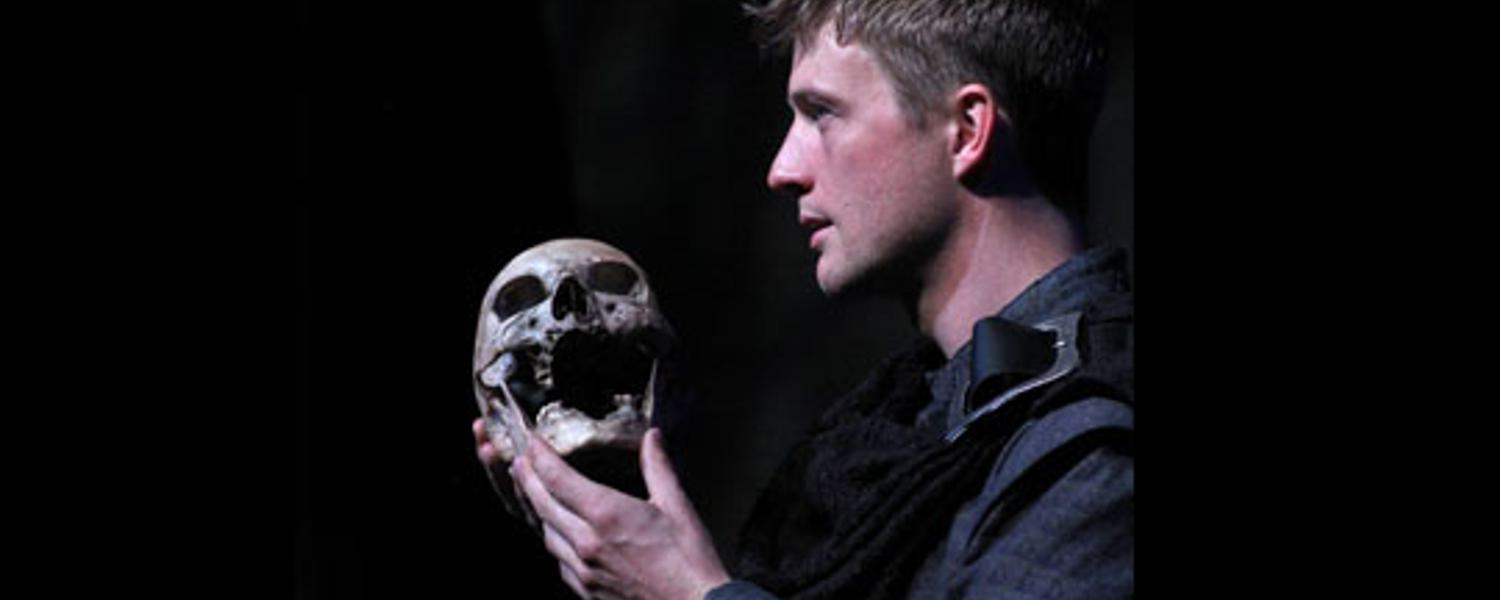
APT Core Company member Matt Schwader has some thoughts for young actors on how to approach speaking those famous Shakespearean lines.
See Matt's full blog post here.
A young actress, a High School senior, attended APT's Hamlet and afterwards sent me a message with a great question. She recently had to perform a very famous Shakespeare speech and while terribly excited she realized that people would likely be familiar with the speech, and thought that most people would be reciting it in their heads, or going 'oh, oh, that's where that's from' instead of listening to her delivery. She wanted to know if I came across a similar experience with the 'To be, or not to be' soliloquy and asked me to talk about what I do when approaching such well know characters. Do I ever make a point to deliver the lines in a new way, or do I just stick to what has been done as long as it's true to the character? The following is my response to her and I thought I might as well share it here too!
Here's what I have to say about speaking those famous lines-
1. Shakespeare may very well have been aware of his genius, but I doubt that when he got to the parts in the plays where Hamlet says 'To be or not To be' or Antony says 'Friends, Romans, Countrymen-' that he thought to himself, 'the stuff so far has been good, but today, TODAY I will sit down and write something FAMOUS!' I think instead, he was just writing the story. One piece at a time. 'To be or not to be' is no more or less important than 'You should not have believed me, for virtue cannot inoculate our old stock but we shall relish of it. I loved you not.' That's a line which you probably don't remember, nor could understand very well because it is a complex botanical metaphor for human inconstancy. But still, it's a powerful and dark sentiment. All this is to say, I treat the famous parts like any other part. They must be necessary, immediate, supported in personal history, and honestly said with intention and relationship.
2. As for living up to other famous versions, I'll let you in on a little secret. No one remembers those 'famous' versions well enough to compare what they think they remember of them to what they are seeing you do right now in front of them. If they do (which they don't), but if they do- who cares? That person is one in a thousand and even then, they will either like what you've done or not; which is what they would have done anyway without another version in their heads to compare. See what I mean? The only path to anything remotely successful is to play the action and the scene for truth, not to attempt to garner respect from the viewer. That will happen or not regardless of anything you do, so you might as well let it be and focus on the action at hand.
3. I personally find that seeing as well as mimicking other versions are great ways to to practice your craft as a young actor. I remember doing Much Ado About Nothing in high school and a few of my fellow teenaged cast mates adamantly did NOT want to watch the Branagh film, because they didn't want it to somehow 'ruin their work'. Fine for them, but I thought, 'I am 16 years old, where would I get off thinking that Kenneth Branagh had nothing to teach me!?' In most visual art schools young painters try to replicate the works of great artists again and again. Ever go to a museum and see a student artist painting a picture of a painting? They are practicing and learning technique and style through the work of a greater artist than themselves in the hope to one day be better painters. Painting a Painting of a PaintingI say, especially when you are young, see what you can see. Mimic if you can. If something doesn't work for you or doesn't feel right for how you see the scene, drop it and try something else. Worst case scenario is that you learned something! Also, regardless of how you 'steal' from another performance, it will inherently be different, because you are a different person doing it.
4. This may seem contrary to #3, because in some ways it is. Don't ever assume that just because someone great did this or that moment brilliantly means that that moment should now be enshrined in that fashion for eternity. Theatre is the art of NOW. Trying to do something for the sake of being new and different will not get you very far, nor will trying to speak the speech exactly as Maggie Smith did it when she played a part. However, trying to be alive in the moment, with the intention of recreating with words the person to whom you are talking, THAT is a journey you can go on your entire artistic career with increasing success and satisfaction.
Steal what you can. Get inspired by the work you see that fails, as well as the work that succeeds . Make bold, brave choices and be not afraid of failure- Actually, forget that last part. That's a stupid thing to say. WE ALL FEAR. Don't try to get rid of your fear. Rather, try to learn to be okay with feeling afraid; to thrill at it. As Hamlet says-
'The readiness is all- let be.'
